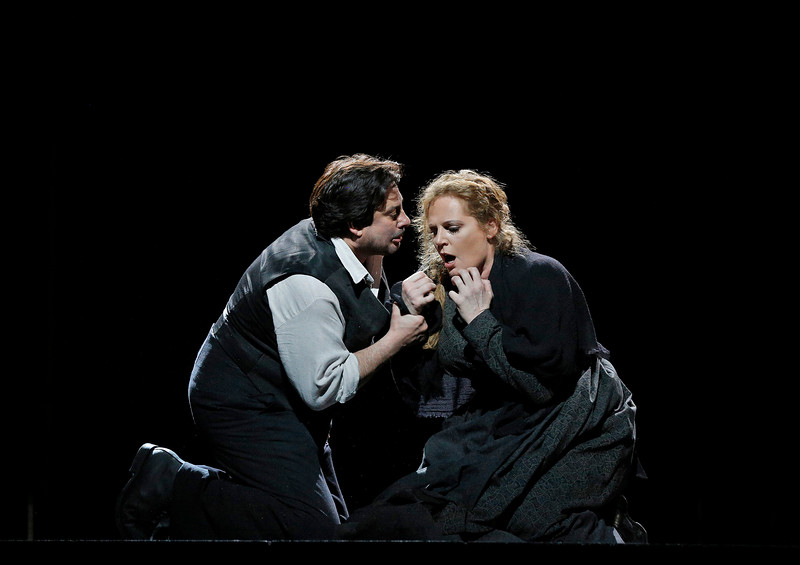
Eva-Maria Westbroek as Santuzza and Marcelo Alvarez as Turiddu in Mascagni’s ‘Cavalleria Rusticana’ – Photo by Cory Weaver/ Metropolitan Opera
On Saturday, April 25th, the Metropolitan Opera’s new production of Cavalleria Rusticana and Pagliacci will be screened live in more than 2,000 cinemas in 70 countries around the world.
Starring Argentinean Marcelo Álvarez in both tenor parts – Turiddu and Canio – Dutch soprano Eva-Maria Westbroek as Santuzza, and American soprano Patricia Racette as Nedda, this staging, directed by Sir David McVicar, is the first new production of Mascagni and Leoncavallo’s verismo double bill in 45 years. Georgian baritone George Gagnidze sings the roles of Alfio in Cavalleria and Tonio in Pagliacci, and Lucas Meachem sings Silvio, Nedda’s secret lover in Pagliacci.
Met Principal Conductor, Fabio Luisi, leads the Metropolitan Opera Orchestra and Chorus, and the broadcast is hosted by American mezzo-soprano Susan Graham.
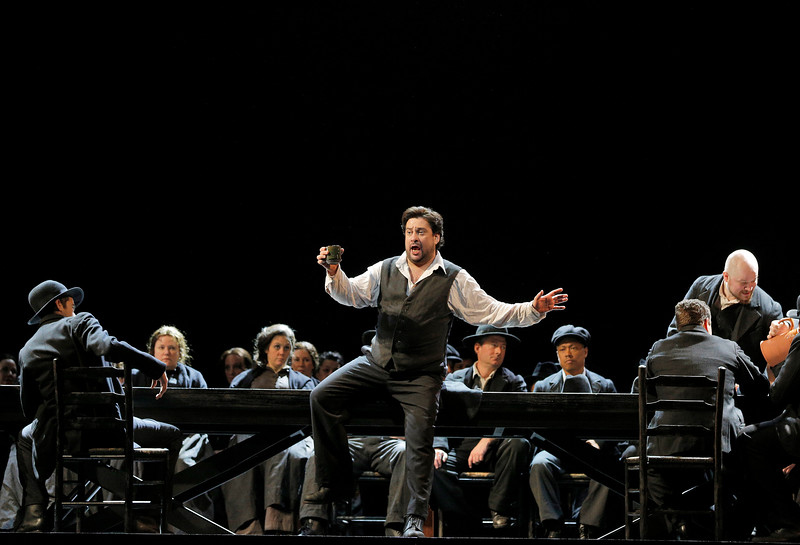
Marcelo Alvarez as Turiddu in Mascagni’s ‘Cavalleria Rusticana’ – Photo by Cory Weaver/ Metropolitan Opera
The verismo style originated in an Italian literary movement – which itself had been influenced by French naturalism – and sought to portray the realism of everyday life. It’s a style which flourished in the last decade of the 19th century, and was characterised by highly melodramatic, and frequently violent, plots. Both Pietro Mascagni and Ruggero Leoncavallo were leading exponents – with Cavalleria Rusticana (Rustic Chivalry) in 1890 – and Pagliacci (The Clowns) in 1892.
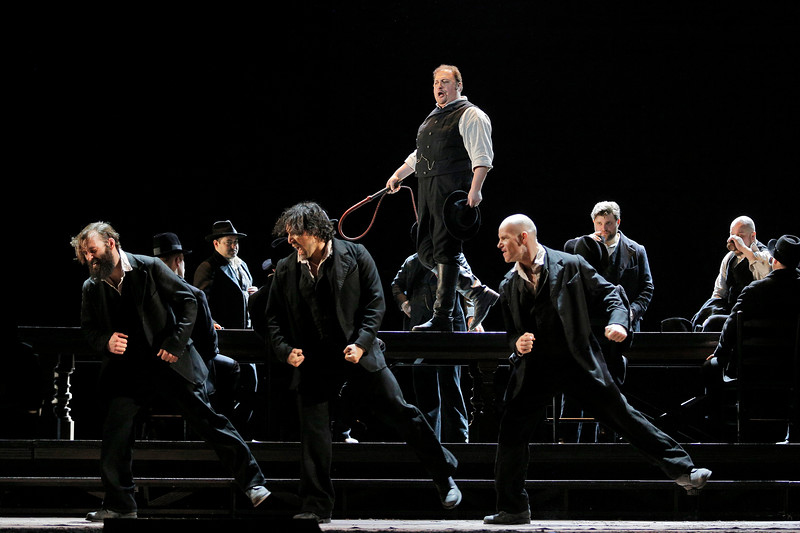
George Gagnidze as Alfio in Mascagni’s ‘Cavalleria Rusticana’ – Photo by Cory Weaver/ Metropolitan Opera.
The two operas are totally unrelated in terms of their content, yet – since the Met first paired them together in 1893 – they have almost always been performed on the same bill. Sir David McVicar’s production has the action of the two operas taking place in the same village in southern Italy, but set in 1900 and 1948 respectively.
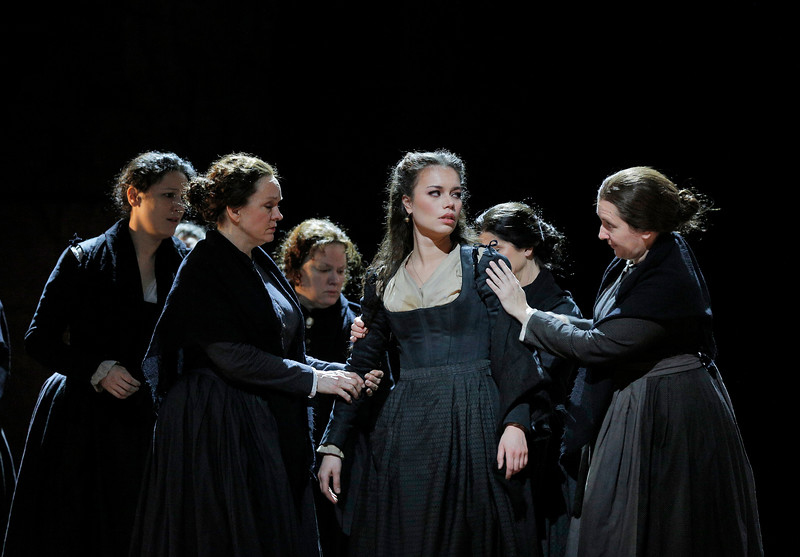
Ginger Costa-Jackson as Lola in Mascagni’s ‘Cavalleria Rusticana’ – Photo by Cory Weaver/ Metropolitan Opera
Mascagni based the plot of his opera on a short story by Giovanni Verga, published in 1880, and adapted into a one-act tragedy which was first produced in 1884. The opera tells of Turiddu who returns to his village from military service to discover that the love of his life, Lola, has married Alfio. Turiddu begins a flirtation with Santuzza, the daughter of his employer, and Lola – overcome by jealousy – makes a play for Turiddu, who rekindles his relationship with her. Santuzza, who is desperately in love with Turiddu, tells Alfio of Lola’s infidelity, Alfio challenges Turiddu to a duel, and Turiddu is killed.
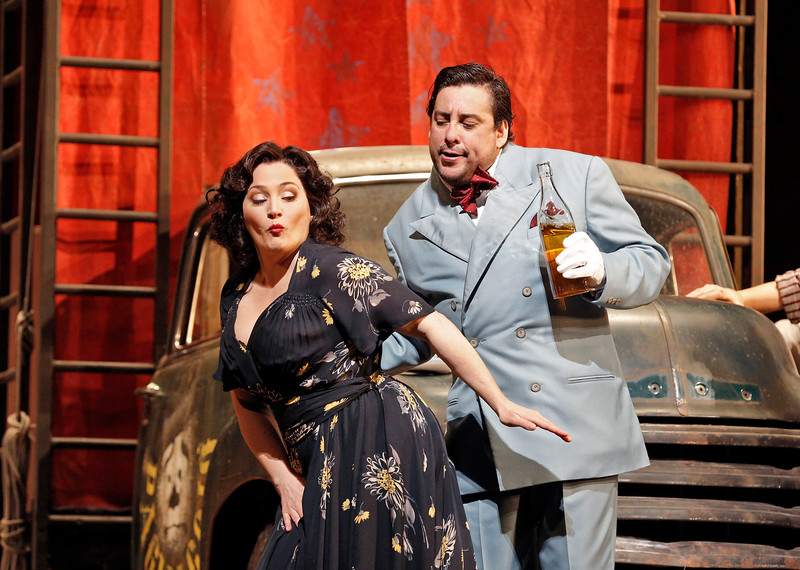
Patricia Racette as Nedda and Marcelo Alvarez as Canio in Leoncavallo’s ‘Pagliacci’ – Photo by Cory Weaver/Metropolitan Opera
Leoncavallo’s Pagliacci is a play within a play, about a touring theatrical company, telling of the love, betrayal, revenge and ultimate tragedy which takes place amongst the members of the troupe. As the story unfolds, the lines between fact and fiction become horribly blurred, and the audience of the onstage performance have no idea – until the denouement – that they’ve been watching a real-life drama being played out before their eyes.
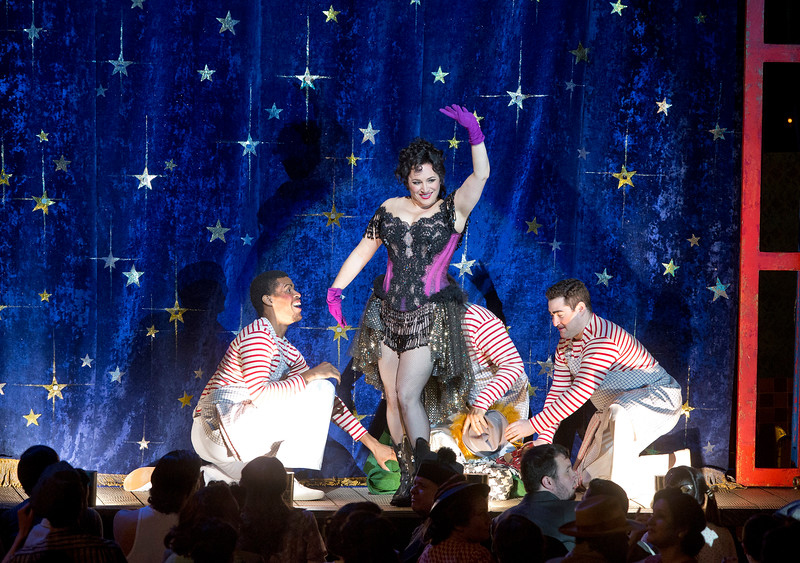
Patricia Racette as Nedda in Leoncavallo’s ‘Pagliacci’ – Photo by Cory Weaver/Metropolitan Opera
The double bill has received glowing praise from the critics. The New York Times writes that in “the formidable challenge” of his double role, “Marcelo Álvarez delivers the most impassioned and commanding singing I have heard from him at the Met”, and that “Eva-Maria Westbroek brings vocal charisma and wrenching vulnerability to Santuzza, the tragic heroine of Cavalleria”.
“David McVicar’s new Met production provides a splendid, subtly contemporary view of the two verismo chestnuts,” says The Wall Street Journal, “demonstrating that these fast-paced tales of jealousy and murder, with their explicit, hair-trigger emotionalism, still have the power to shock ….. [Patricia Racette’s] full-bore participation in the ‘play’ was particularly stellar, considering that it was hilariously staged with the aid of a vaudeville consultant …. and three adept clowns …”
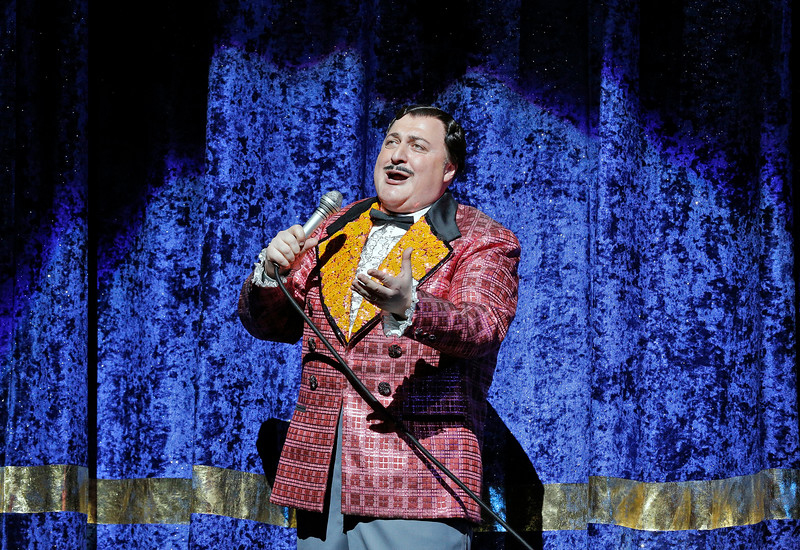
George Gagnidze as Tonio in Leoncavallo’s ‘Pagliacci’ – Photo by Cory Weaver/Metropolitan Opera.
Commenting on Fabio Luisi’s performance, the WSJ writes: “Mr. Luisi’s sculpted conducting was propulsive and theatrical, creating, along with Mr McVicar, a sense of deliberate showmanship.”
WQXR says: “The music is simple, sweepingly romantic and dramatic, like a grand score for a movie, and the orchestra and splendid Met chorus carry much of the storytelling. The lovely and familiar intermezzo …… is rendered beautifully by the superb Met Orchestra under Fabio Luisi’s assured baton.”
“As with the Mascagni,” writes New York Classical Review, “Fabio Luisi shaped his reading of Leoncavallo’s score with keen theatrical awareness, leading a bubbling, joyous opening chorus and attacking the limping figures of the commedia scene with harrowing ferocity.”
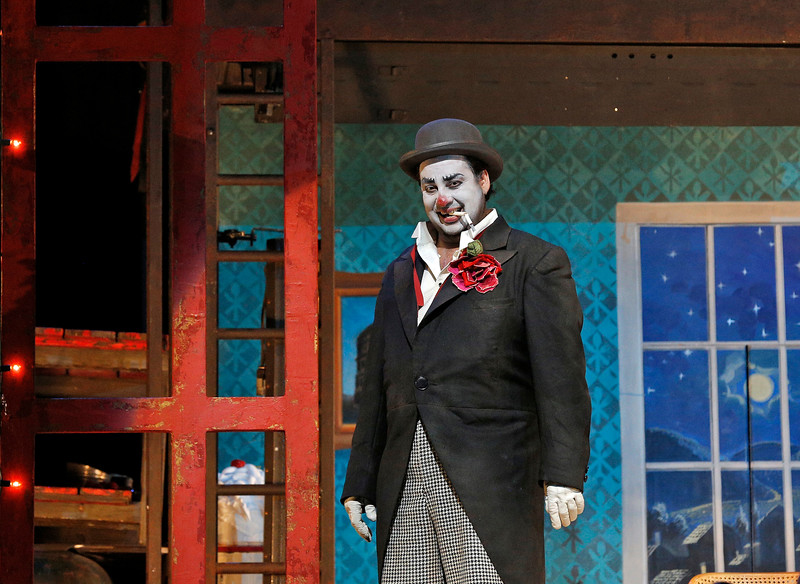
Marcelo Alvarez as Canio in Leoncavallo’s ‘Pagliacci’ – Photo by Cory Weaver/Metropolitan Opera.
The Metropolitan Opera’s production of Cavalleria Rusticana and Pagliacci takes place at 12.30 pm (EST) on Saturday, April 25th. Check with your local theatres for dates and times in your part of the world. Follow these links to find US and International theatres.
